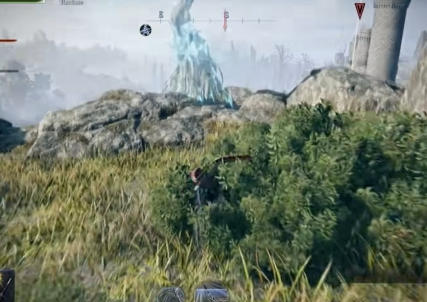Elden Ring isn’t just a game about epic battles and jaw-dropping landscapes; it’s also a game with a surprisingly complex economy. As you wander through the Lands Between, collecting runes, upgrading weapons, and leveling up your character, you quickly realize that the way runes are earned and spent has a huge impact on how players interact with one another. For anyone who’s dived deep into Elden Ring, you know that rune management can make or break your experience.
The Value of Runes in Daily Gameplay
Runes are more than just numbers on a screen. They represent your progress, your ability to grow stronger, and your freedom to experiment with new builds. But the game doesn’t hand them out equally. Some areas are packed with enemies that drop tons of runes, while others barely give you enough to cover a single upgrade. This imbalance creates natural tension. Players are constantly balancing risk and reward, deciding whether to grind in dangerous zones or conserve runes for essential purchases.
Because of this scarcity, some players look for ways to supplement their rune collection. One common approach is to buy Elden Ring runes from trusted services like U4GM. It’s not just about skipping the grind—it’s about being able to experiment more freely with builds, weapons, and spells without constantly worrying about running out of resources. From a gameplay perspective, this freedom can make the game feel less punishing and more fun, especially when you’re trying out a new strategy.
Trading and the Online Community
What’s interesting is how the in-game economy bleeds into the online community. Multiplayer interactions, co-op, and even PvP fights are all influenced by the rune system. When you know other players are trading or supplementing their runes, it changes how you approach encounters. For instance, you might see someone who’s clearly invested in a high-level build and realize that traditional tactics won’t work as easily. This creates a kind of unspoken strategy layer: understanding not just your own resources, but anticipating your opponents’ or teammates’ capabilities as well.
This is where the market for buying cheap Elden Ring runes PC becomes relevant. Not everyone has the time to farm every rune, and for some, accessing additional runes through legitimate channels is a practical solution. It’s a small convenience that lets players focus more on exploring and experimenting rather than endlessly grinding. Personally, I find that even a modest rune boost can drastically change how I approach a tough boss fight, letting me test weapons and abilities I might otherwise have avoided.
Why Rune Trading Feels Natural
Unlike some other games, Elden Ring doesn’t punish you for trading or supplementing your runes. In fact, the way the economy is structured almost encourages it. Since runes are tied to progression and experimentation, players are incentivized to find creative ways to gather or acquire them. Trading, buying, or otherwise exchanging runes feels like a natural extension of this system. It’s not about cheating; it’s about efficiency and choice. The game is demanding, and having flexible access to resources helps maintain the sense of flow that makes Elden Ring so addictive.
Moreover, the economy mirrors real-world dynamics in a subtle way. Scarcity, supply, and demand all play a role. If everyone had infinite runes, the thrill of upgrading and experimenting would be gone. By keeping runes valuable and occasionally hard to come by, the game creates a mini-economy where trading and supplementing resources feel entirely justified.
Tips for Navigating the Rune Economy
From a player’s perspective, there are a few practical takeaways. First, don’t underestimate the value of planning your rune expenditures. Leveling up, upgrading weapons, and stocking essential items all require careful budgeting. Second, consider your personal playstyle. Some players enjoy the thrill of grinding and earning every rune themselves, while others prefer to supplement through services like U4GM to focus on exploration and combat. Neither choice is “wrong”—it’s about what keeps the game fun for you. And finally, keep an eye on co-op opportunities. Sharing knowledge, tips, and strategies about rune farming can be just as valuable as the runes themselves.
At the end of the day, Elden Ring’s economy adds an extra layer of strategy and community interaction that many players don’t initially notice. Rune trading—whether through direct player exchanges or trusted online services—enhances this system, making the game feel more dynamic and less punishing. For me, understanding this aspect of the game transformed it from a grind-heavy RPG into an adventure full of meaningful choices and clever strategies.

